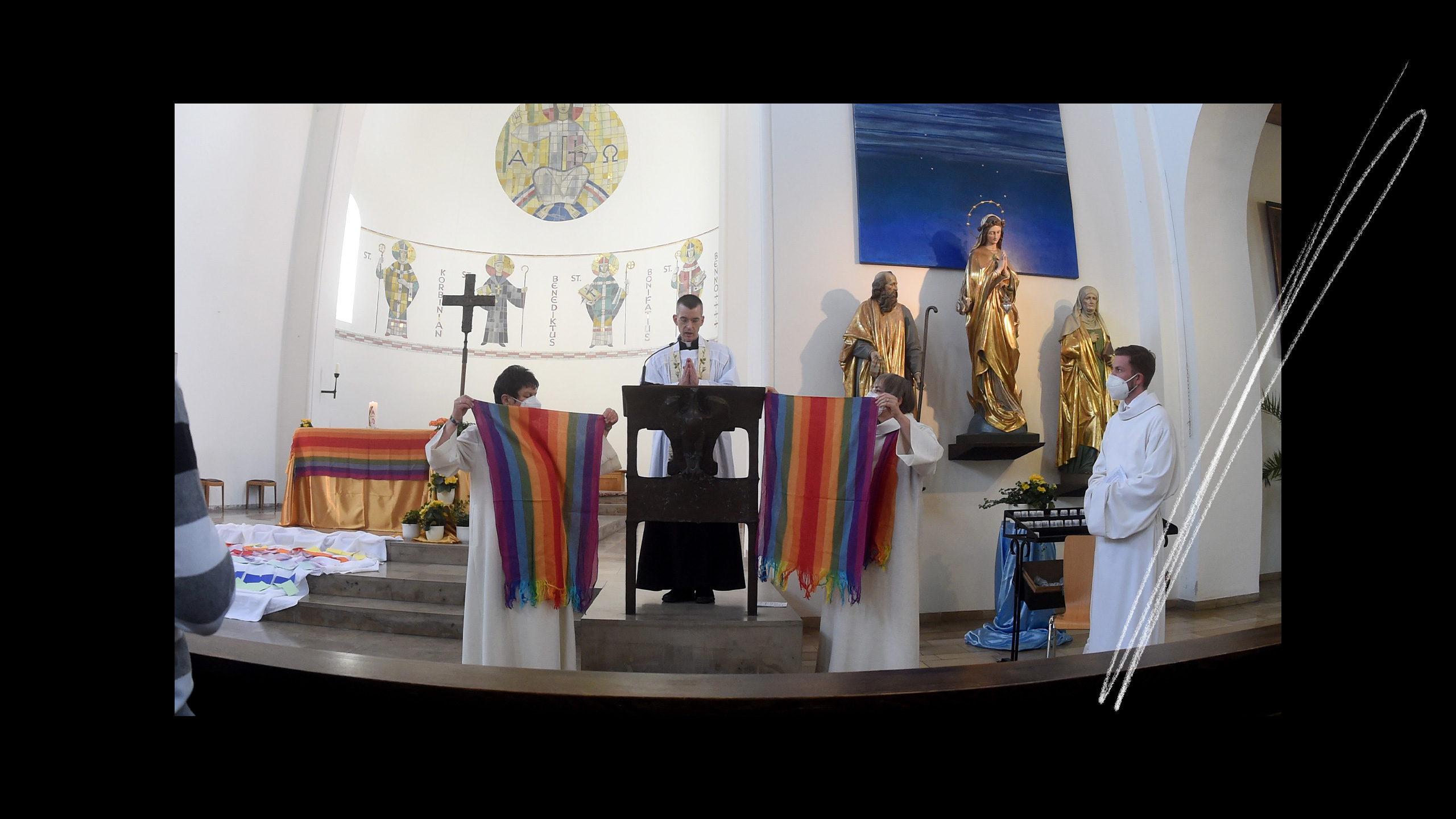This week, 125 Catholic priests, employees, teachers and volunteers staged a mass coming out to demand structural changes to the Catholic Church in Germany.
Members of the #OutInChurch initiative released a comprehensive list of demands on Jan. 24. They range from allowing all church staff to work openly as LGBTQ+ people and changing an employment policy that considers certain sexual orientations and gender identities to be a “breach of loyalty” to allowing LGBTQ+ persons and couples to receive blessings from the Church.
The group also calls on church bishops to take responsibility for the harm the Catholic Church has caused LGBTQ+ communities throughout its history.
“A church that carries at its core the discrimination and exclusion of sexual and gender minorities must ask itself whether it can appeal to Jesus Christ in support of such a state of affairs,” the #OutInChurch manifesto states. “The fight for equality and against discrimination must not be left to marginalized minorities alone. It concerns everyone.”
The initiative was inspired by last year’s #ActOut campaign, in which nearly 200 German actors came out as LGBTQ+ to call for greater diversity in theatre, film and television.
“I’m participating in #outinchurch because I want the Catholic Church to see the diversity of sexual orientations and gender identities as an enrichment,” says Joachim Wollenweber, a priest at the Diocese of Aachen, in a statement published on the initiative’s website.
Catholics are Germany’s largest religious community, with 2.2 million people identifying as members of the Church. They also make up nearly 18 percent of the world’s population. As a group, Catholics are largely progressive on LGBTQ+ issues: more than 50 percent agreeing that the Church should reconsider how it handles queer and trans inclusion, according to a 2018 survey commissioned by the non-profit data collection firm YouGov.
The Church itself, though, has a mixed record on LGBTQ+ equality. Although lauded as a progressive influence, Pope Francis has made statements both in support of and in opposition to LGBTQ+ issues. Although he has voiced support for same-sex civil unions for years, he has also claimed that trans people are “against nature.”
For its part, the Vatican has continuously held firm in its opinion that queer relationships are antithetical to Catholicism. Last year, the Vatican’s Congregation for the Doctrine of Faith reiterated that the Catholic Church cannot bless same-sex marriages after some parishes in Germany and the United States had begun blessing all couples. Catholic leaders claimed that such relationships were a “sin.”
German Catholic leaders, however, continued to defy this rule and blessed same-sex unions. Rev. Jan Korditschke decided to hold blessings for LGBTQ+ couples in Berlin “because the love of homosexuals is something good.
“I stand behind what I am doing, though it is painful for me that I cannot do it in tune with the church leadership,” Korditschke, who works for the city’s Jesuit diocese, told the Associated Press last May. He added that “the homophobia of my church makes me angry and I am ashamed of it.”
The Central Committee of German Catholics, one of Germany’s prominent Catholic organizations, has supported blessing same-sex unions since 2015.
Germany legalized marriage equality in 2017 and has made numerous strides in advancing LGBTQ+ rights for the past decade. It created a third-gender option on birth certificates, outlawed conversion therapy and elected two trans lawmakers to is parliament for the first time last year. In January, German Chancellor Olaf Scholz appointed the country’s first-ever LGBTQ+ commissioner, Sven Lehmann.


 Why you can trust Xtra
Why you can trust Xtra


